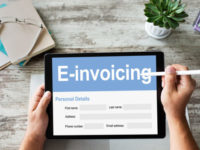As part of this year’s Scams Awareness Week, the Australian Banking Association (ABA), the Council of Small Business Organisations Australia (COSBOA) and the Australian Small Business and Family Enterprise Ombudsman (ASBFEO) are encouraging small businesses to register for PayID or use BPAY and e-invoicing when paying or receiving payment for invoices to in a bid to vercome the threat of falling victim to scammers.
The reminder comes in the wake of the research revealing that Australians lost more than $850 million to scammers last year, with payment redirection scams costing Australian businesses $128 million in losses.
Anna Bligh, Chief Executive Officer at the Australian Banking Association, said that while data shows the number of scams continues to rapidly increase, there are some ways to ensure businesses and their customers are sending money to the correct account.
“Hundreds of millions of dollars are being lost to scammers every year across the world, however, services in Australia such as PayID, BPay and e-invoicing can ensure anyone that they’re paying the correct person before they send their money,” Bligh said.
“PayID, for example, is a unique feature that will help prevent scams for individuals and businesses. Unlike paying to a BSB and account number, PayID gives the user the ability to confirm the name of the account holder before you transfer your funds,Bligh added. “It’s easy to register and it’s easy to use. So far, there are more than eight million PayID’s registered. These types services are readily available for businesses, and I encourage each and every one of them across Australia to sign up and reduce the chances of being scammed.”
Alexi Boyd, Chief Executive Officer at COSBOA, said no matter how many staff a business has it is incredibly important to be aware of scams and cybersecurity.
“We know that many small-business owners feel that they don’t have resources to carefully consider their cybersecurity,” Boyd said. “Their role in the supply chain with big business and increasing digital engagement with Government makes them vulnerable. Scammers take advantage of this. Using services such as two-step authentication, e-invoicing and double-checking the authenticity of webpage links are easy and simple steps to protect yourself from these very costly – and abhorrent – scams.”
Bruce Billson, the Australian Small Business and Family Enterprise Ombudsman, said that it is crucial for every business to stay alert to scams and understand how to protect themselves from cyber criminals.
“One of the most financially harmful scams affecting Australian businesses, including small businesses, is the ‘business email compromise’ scam. If you have staff, talk to them about this scam to make them aware of how it works and what to look for if they are targeted,” Billson said.
“It is important to know how to protect yourself from business email compromise scams. If you get a request to change your payment details, and you are in doubt at any time, make sure you call to verify the details before making the payment.”
Recent ABA analysis of data showed more than 80 per cent of Australians prefer to pay bills, check account balances or transfer money online as usage of cash is continuing to decline. The data revealed that ATM withdrawals decreased by 20 per cent in the year to August 2021, after falling 16 per cent in 2020.
“As banking becomes more digitalised, no longer do customers prefer to sign a cheque or pay with cash,” Bligh said. “As a result, we all need to be more cautious about scammers and utilise services that ensure our money is being sent to the right business or individual.”














